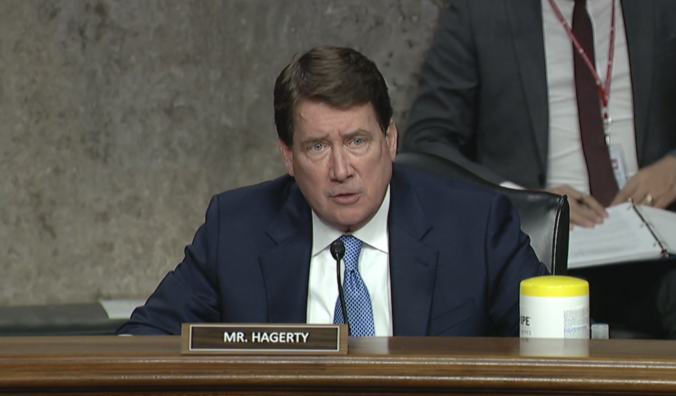WASHINGTON—United States Senator Bill Hagerty (R-TN), ranking member of the Foreign Relations Subcommittee on State Department and USAID Management, International Operations, & Bilateral International Development, today delivered opening remarks at a hearing on Training the Department of State’s Workforce for 21st Century Diplomacy.

*Click the photo above or here to watch*
Remarks as prepared for delivery:
Chairman Cardin, I want to thank you for convening this hearing.
I also want to recognize our three witnesses who have graciously agreed to join us today, and I want to thank each of you for your service. We look forward to hearing from you
Before we begin, I am disappointed that the Bureau of Global Talent Management could not join us today. As a former U.S. Ambassador to Japan, I recognize that the issues of training and personnel management go hand-in-hand. I hope to work with Senator Cardin and make significant progress on personnel-related matters in the near future.
Today, we are focusing on the important subject of training the State Department’s Workforce. In July, this Subcommittee held a hearing on the topic of modernizing the State Department for the 21st Century.
State Department’s Workforce. In July, this Subcommittee held a hearing on the topic of modernizing the State Department for the 21st Century.
All three of our witnesses agreed that change is desperately needed at the State Department, and each of our witnesses spent a considerable amount of time discussing the need to improve training at the State Department.
We can all agree that the development of our diplomats—their education, training, and professionalization—must be among the State Department’s highest priorities.
This is particularly a glaring problem considering that in my view the State Department attracts some of the most talented individuals in U.S. government.
According to a study, the people of the State Department join, on average, with a graduate education and 11 years of work experience. Yet, the same study noted that State—and I quote—“treats education as a prerequisite for hiring, not a continuing requirement to prepare personnel for subsequent responsibilities.”
In essence, when diplomats come in the door, they are treated as though they have all the knowledge and skill necessary for the profession. The only leadership instruction provided is mentoring by senior diplomats.
This must change.
As part of addressing the training deficiency at the State Department, Secretary Blinken specifically announced his intent to implement Secretary Powell’s idea for a training float—a set number of employees who are receiving professional training at any given time, without sacrificing the Department’s readiness.
I support that idea in principle, but Congress should ask hard questions and hold the Department accountable on personnel- and training-related matters.
I raise this point because Congress has provided the Department with ample resources over the past 15 years to establish a training float.
Since 2007, the State Department has added combined 3,500 Foreign Service and Civil Service employees. This amounts to approximately 20% increase in the total number of employees.
With a 20% increase in the number of Foreign and Civil Service employees, the Department could have faithfully implemented Secretary Powell’s vision for a training float—with 15% of the workforce dedicated to training at all times.
Yet, here we are in 2021 attempting to address the same issue.
To echo Senator Cardin’s statement earlier, I look forward to seeing a concrete plan on this issue from the State Department. We will need to be bold in reimagining how the Department approaches training—recognizing that the Department must embrace a new culture.
We must also incentivize and reward our diplomats to seek further education and professional development opportunities. We must develop a cohesive program that identifies the skills which diplomats will need as their responsibilities burgeon at higher levels in the profession.
I look forward to hearing from our witnesses about this subject and specific recommendations to improve training at the State Department.
Mr. Chairman, back to you.